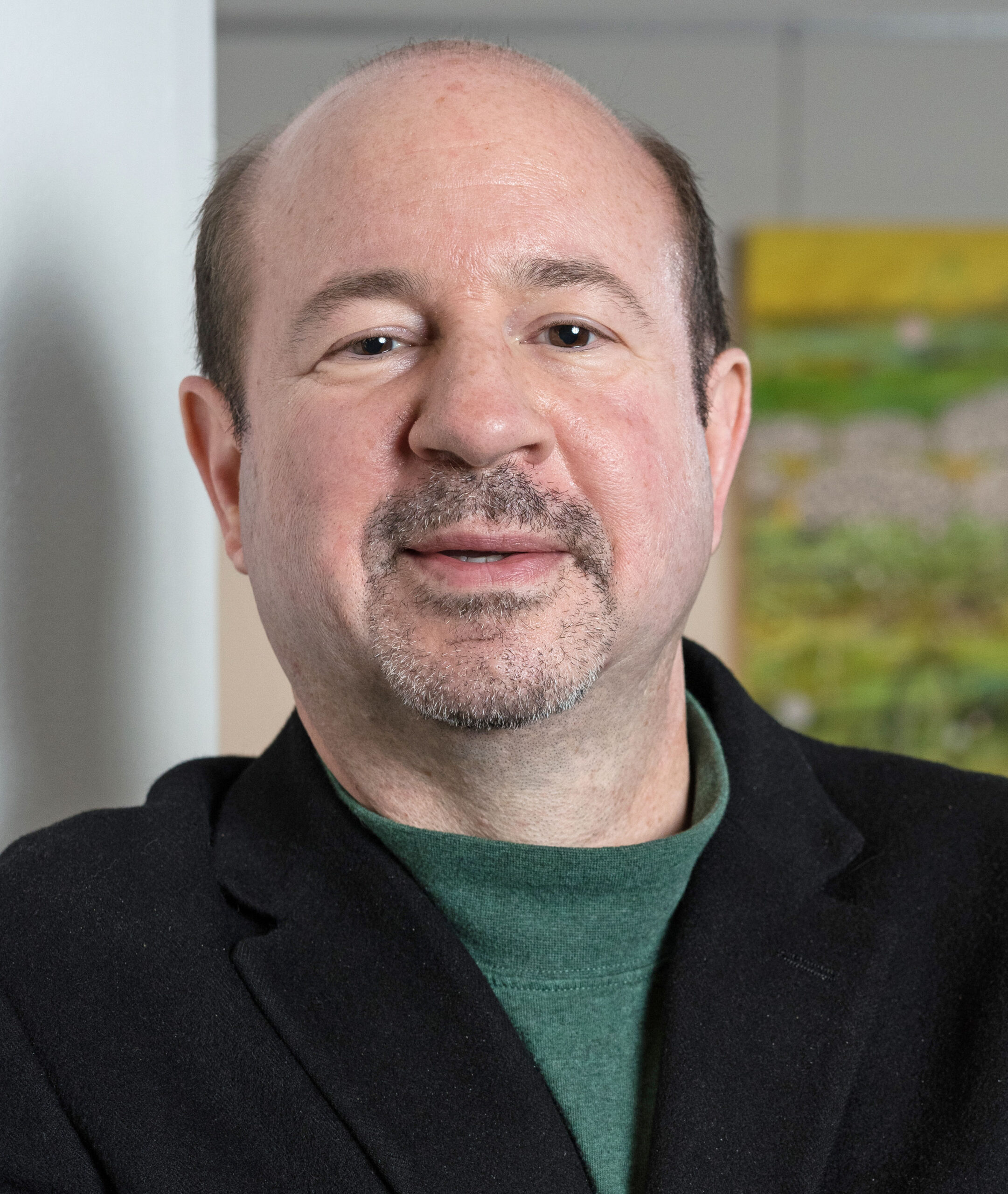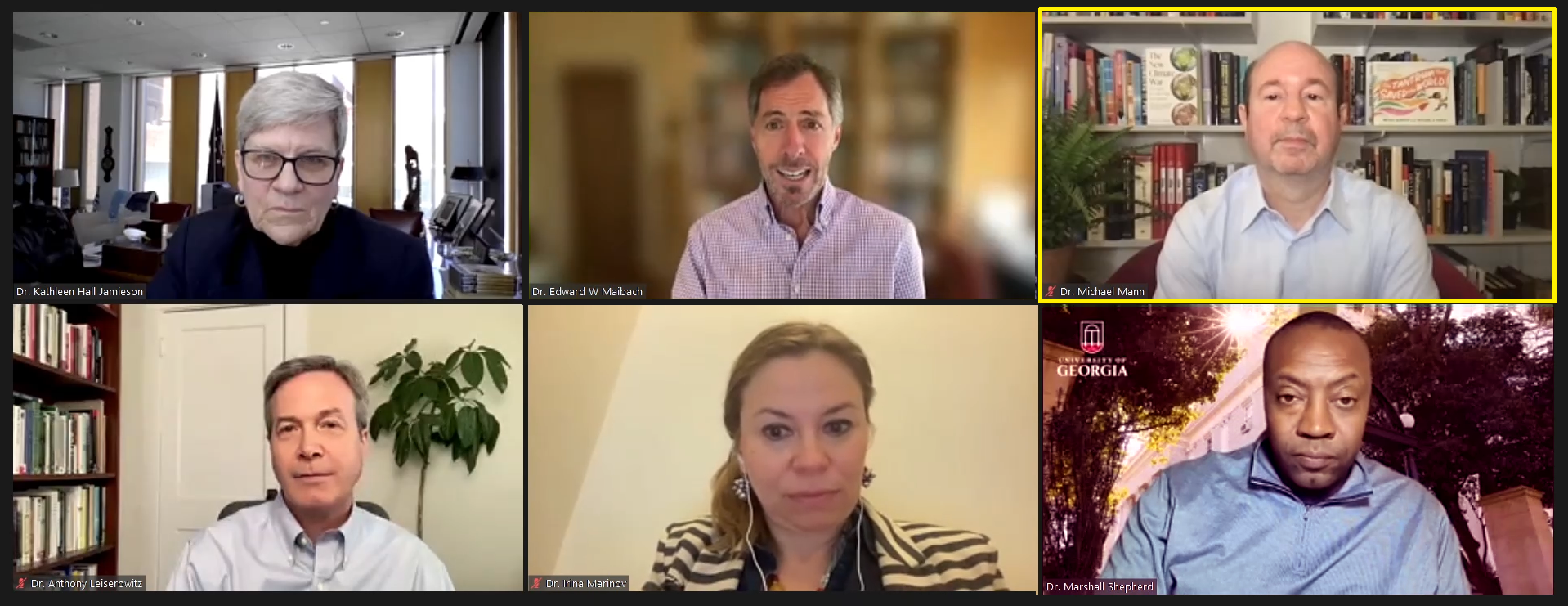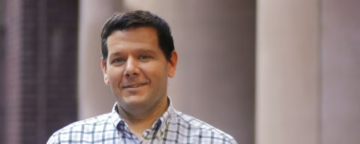Climate scientist Michael E. Mann led a panel discussion on “Urgency, Agency, and Climate Action: The Role of Communication” for the spring 2022 Annenberg Seminar, which was hosted jointly by the Annenberg Public Policy Center (APPC) and the Annenberg School for Communication (ASC).

Currently at Penn State, Mann will join the University of Pennsylvania faculty in September 2022 as a Presidential Distinguished Professor in the Department of Earth and Environmental Science (EES), with a secondary appointment at ASC. A distinguished research fellow at APPC, Mann will be the inaugural Director of a new Penn Center for Science, Sustainability and the Media, a Perry World House faculty fellow, and a fellow at the Kleinman Center for Energy Policy.
Mann’s research focuses on the earth’s climate system, the impacts and implications of human-caused climate change, and climate education and policy, and is perhaps best known for his work on the 1999 “hockey stick” graph study showing changes in temperature over the past 1,000 years and the impact of human activities on the climate. A renowned climate communicator, he also is a co-founder of the science website RealClimate.org. His latest books include “The New Climate War: The Fight to Take Back Our Planet” and “The Tantrum that Saved the World.“
Mann was joined in the session by three other leading climate science communicators — J. Marshall Shepherd, the Georgia Athletic Association Distinguished Professor of Geography and Atmospheric Sciences at the University of Georgia; Edward Maibach, Distinguished University Professor and Director of George Mason University Center for Climate Change Communication; and Anthony Leiserowitz, Founder and Director of the Yale Program on Climate Change Communication at the Yale School of the Environment.
The panel discussed the importance of communicating both the urgency of the climate crisis and the agency that people have to take action, underscoring the fact that solving the climate crisis requires both collective action from individuals, corporations, governments and nonprofits, and systemic and societal shifts in how we think about and approach the issue. As Mann noted, the “battle for climate action doesn’t occur in a vacuum,” but is part of the larger fight for factual discourse.
The panelists touched on the need to make clear to the public that uncertainty in science doesn’t mean that scientists have no idea about something and that we therefore shouldn’t take action. The panelists also discussed the idea that climate communicators need to appeal to values that people already hold and find shared values with their audiences.
APPC Director Kathleen Hall Jamieson announced the creation of a board to help guide APPC in “trying to increase the quality of climate communication,” as well as three new postdoctoral fellowships in climate communication open to researchers at Penn. The first three members of the board, jointly formed by Jamieson and Mann, will be Shepherd, Maibach, and Leiserowitz.
As ASC Dean John L. Jackson, Jr., noted in his opening remarks, the annual Annenberg Seminar has taken a variety of forms over the years, from traditional lectures to panel discussions to a conversation to a violin recital. Past honorees have included the journalist and broadcaster Gwen Ilfill; former New York Times Co. CEO Mark Thompson; geophysicist and National Academy of Sciences President Marcia McNutt; USC Annenberg School for Communication and Journalism Dean Willow Bay; and former Federal Communications Commission Chairman Tom Wheeler.



